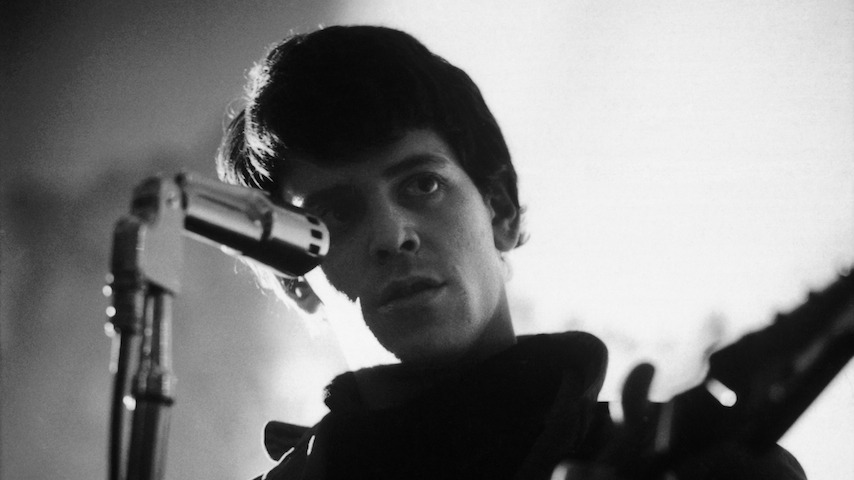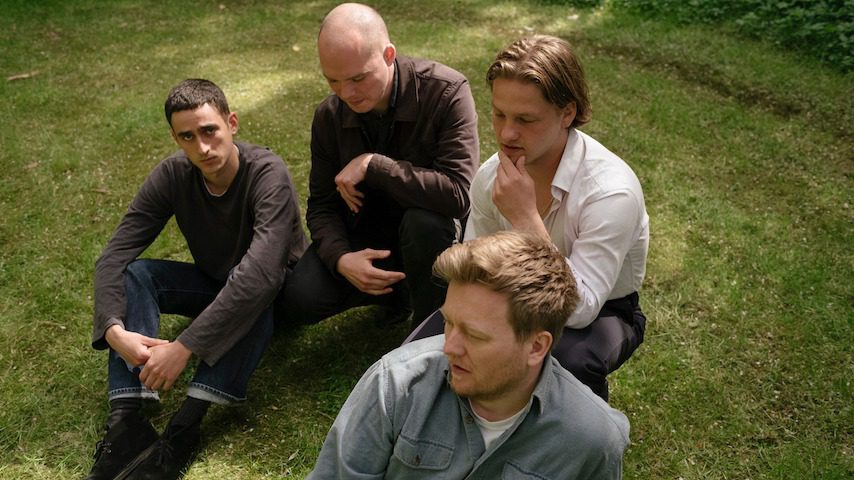The Velvet Underground are one of the most mythologized bands in history, for good reasons and bad. Their avant-garde rock was way ahead of its time, and Lou Reed was one of the greatest American songwriters ever. Other band members like John Cale, Maureen Tucker and Doug Yule were inventive and influential in their own right, even though they weren’t a part of all five studio albums. They were a deliberate foil to the Summer of Love bands (which they ended up channeling in their later years), but their association with the hedonistic, subversive arts scene of New York City in the late ’60s and ’70s made them similarly ripe for decades worth of rumors and biographies. After all, world famous pop artist Andy Warhol was their manager for a spell. In regards to their 1967 debut The Velvet Underground & Nico, Brian Eno famously said something to the effect of “Everyone who bought a copy started a band,” which couldn’t have been literally accurate, but its sentiment rang true: The Velvet Underground were incredibly inspiring, even if they experienced their highest levels of commercial success after their time.
One reason The Velvets are so fascinating is each of their albums has its own distinct identity, meaning listeners are left to their own preferences when deciding which one they think is best. Sopranos actor Michael Imperioli recently got dunked on for picking Loaded as his favorite VU album, so we thought we’d set the record straight on our favorites. Here’s Paste’s ranking of the five Velvet Underground albums.
1. White Light / White Heat
What was the point of rock ‘n’ roll after White Light / White Heat? The Velvets basically blew the whole damn thing up on their second record, a dirty, scuzzy, unhinged, but very calculated blast of rabid post-blues madness. Full of drugs, noise and graphic details of the kind of non-heteronormative sexuality that would’ve been called “deviant” back in its day, White Light / White Heat is an intentionally difficult record, one that’s gorgeous in its ugliness and overpowering in its confidence. Guitar solos don’t get better than “I Heard Her Call My Name,” and “Sister Ray” is simply the greatest rock song ever recorded. If every kid got a copy of this thing when they turned 13, we’d be living in a much better world. —Garrett Martin
2. The Velvet Underground
Their self-titled third album, which celebrated its 50th anniversary last year, was a pretty jarring departure from the off-the-wall harshness of its predecessor White Light / White Heat. It was the first album without founding member John Cale, and it was also their most gentle, melodic record, which isn’t a coincidence since Cale helped shape the experimental tendencies that characterized their early career. Cale’s replacement, Doug Yule, wasn’t an insignificant background player. He sang lead vocals on the opener “Candy Says,” a tender song about gender dysphoria, specifically that of Warhol superstar Candy Darling, which was a pretty taboo subject matter at the time. This album has the most tear-jerkers out of any VU record, including their best ever (“Pale Blue Eyes”), and it also has one of their greatest rollicking rock tunes (“What Goes On”). It proved they had more depth than just daringly chaotic art rock—they could beat understated rockers at their own game too. —Lizzie Manno
3. The Velvet Underground & Nico
Look, these top three are a total crapshoot. They’re all basically number one. The Velvet Underground & Nico is so important that calling it “one of the most important records ever” is still somehow an understatement. This is where the story of rock and roll started to split, the creation of an underground where punk, indie rock, noise, drone and so many other vital musical developments would flourish over the next several decades. The band’s collaboration with Nico introduced a fully-realized, wide-ranging aesthetic that embraced folk, pop, minimalism, rock and noise in equal measure, and established Reed as one of the most perceptive and daring writers in pop music. Every song on here is a classic, but “I’m Waiting for the Man” and “Heroin” are every bit as striking and powerful today as they must have been in the ’60s, and there’s a reason “Femme Fatale” has been covered by like half the bands in my record collection. —Garrett Martin
4. Loaded
Loaded is the Velvets’ most happy-go-lucky and straight-up rock ‘n’ roll record. With hints of pop, country and blues, it’s easily their most palatable album for the average listener. It’s also a vocal wonderland—we get Beach Boys-esque “ba-ba-ba-ba’s” (“Who Loves the Sun”), bluesy glam snarl (“Cool It Down”) and even a very brief yodel (“Lonesome Cowboy Bill”). With their previous records in mind, at times, these songs sound like they’re doing an impression of a traditional rock ‘n’ roll band—after all, there’s literally a track called “Rock and Roll”—but because the songwriting is so strong and the performances are so sincere, it doesn’t get in the way of pure enjoyment. There was a lot of background drama surrounding this album—their record label was hellbent on scoring radio hits, and tensions amongst the band led to the departure of Lou Reed before the album was even released—but it was one hell of a final hurrah. —Lizzie Manno
5. Squeeze
It’s probably sacrilegious to even include Squeeze in a Velvet Underground albums list, but it was, in fact, released under the band’s name, so we’re obligated to include it here. With the departure of Lou Reed, Sterling Morrison and Moe Tucker, that meant Doug Yule was left to record the band’s final album alone. It’s essentially a Doug Yule solo album, and it doesn’t leave much of an impression, but the famous British new wave band got their name from this album, so that’s something. Released three years after Loaded, it’s a perfectly fine album to listen to if you divorce it from the band’s impeccable discography and legacy, but that’s a difficult ask. The album takes cues from the Loaded era of VU, but the hooks and performances are much less convincing. However, “Friends” is an undeniably moving, layered pop ballad, and it’s one of Yule’s finest VU contributions. Hating this album is harsh, but ignoring it is fair enough. —Lizzie Manno




